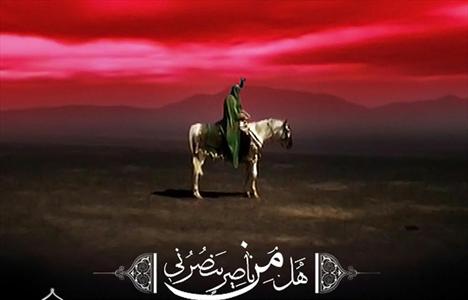Hawzah News Agency- As you might have already heard some of these quotes before, not only Muslims and Shia scholars admire Imam Husayn (as) but also there a lot of non-Muslim authors and scholars who had fascinating opinions about the great sacrifice of humanity.
Edward Gibbon (1737-1794), considered as the greatest British historian of his time writes,
“In a distant age and climate the tragic scene of the death of Husayn will awaken the sympathy of the coldest reader.”
[The Decline and Fall of the Roman Empire, London, 1911, volume 5, pp. 391-2]
Peter J. Chelkowski, Professor of Middle Eastern Studies, New York University, writes,
“Husayn accepted and set out from Mecca with his family and an entourage of about seventy followers. But on the plain of Kerbela they were caught in an ambush set by the … caliph, Yazid. Though defeat was certain, Husayn refused to pay homage to him. Surrounded by a great enemy force, Husayn and his company existed without water for ten days in the burning desert of Karbala. Finally Hussein, the adults and some male children of his family and his companions were cut to bits by the arrows and swords of Yazid’s army; his women and remaining children were taken as captives to Yazid in Damascus. The renowned historian Abu Reyhan al-Biruni states; “… then fire was set to their camp and the bodies were trampled by the hoofs of the horses; nobody in the history of the human kind has seen such atrocities.”
[Ta’ziyeh: Ritual and Drama in Iran, New York, 1979, p. 2]
Reynold Alleyne Nicholson(1868-1945), Sir Thomas Adams Professor of Arabic at the University of Cambridge, writes,
“Husayn fell, pierced by an arrow, and his brave followers were cut down beside him to the last man. Muhammadan tradition, which with rare exceptions is uniformly hostile to the Umayyad dynasty, regards Husayn as a martyr and Yazid as his murderer.”
[A Literary History of the Arabs, Cambridge, 1930, p. 197 ]
Robert Durey Osborn (1835-1889), the Major of the Bengal Staff Corps, writes,
“Husayn had a child named Abdallah, only a year old. He had accompanied his father in this terrible march. Touched by its cries, he took the infant in his arms and wept. At that instant, a shaft from the hostile ranks pierced the child’s ear, and it expired in his father’s arms. Husayn placed the little corpse upon the ground. ‘We come from God, and we return to Him!’ he cried; ‘O Lord, give me strength to bear these misfortunes!’ … Faint with thirst, and exhausted with wounds, he fought with desperate courage, slaying several of his antagonists. At last he was cut down from behind; at the same instance a lance was thrust through his back and bore him to the ground; as the dealer of this last blow withdrew his weapon, the ill-fated son of Ali rolled over a corpse. The head was severed from the trunk; the trunk was trampled under the hoofs of the victors’ horses; and the next morning the women and a surviving infant son were carried away to Kufa. The bodies of Husayn and his followers were left unburied on the spot where they fell. For three days they remained exposed to the sun and the night dews, the vultures and the prowling animals of the waste; but then the inhabitants of a neighboring village, struck with horror that the body of agrandson of the Prophet should be thus shamefully abandoned to the unclean beasts of the field, dared the anger of Obaidallah, and interred the body of the martyr and those of his heroic friends.”
[Islam Under the Arabs, Delaware, 1976, pp. 126-7]
Sir William Muir (1819-1905), the Scottish scholar and statesman and held the post of Foreign Secretary to the Indian government as well as Lieutenant Governor of the Northwestern Provinces writes:
“The tragedy of Karbala decided not only the fate of the caliphate, but of the Mohammedan kingdoms long after the Caliphate had waned and disappeared.”
[Annals of the Early Caliphate, London, 1883, pp. 441-2]
Karbala symbolizes the true face of struggle against injustice – non-violent resistance. Not taking life but sacrificing your life for Islam. In summary, it is not out of place to say in words of some known Indian poets:
•Let humanity awaken and every tribe will claim Hussain as their own.
•In the martyr of Imam Husayn (as), lies the death of Yazid, for Islam resurrects after every Karbala

